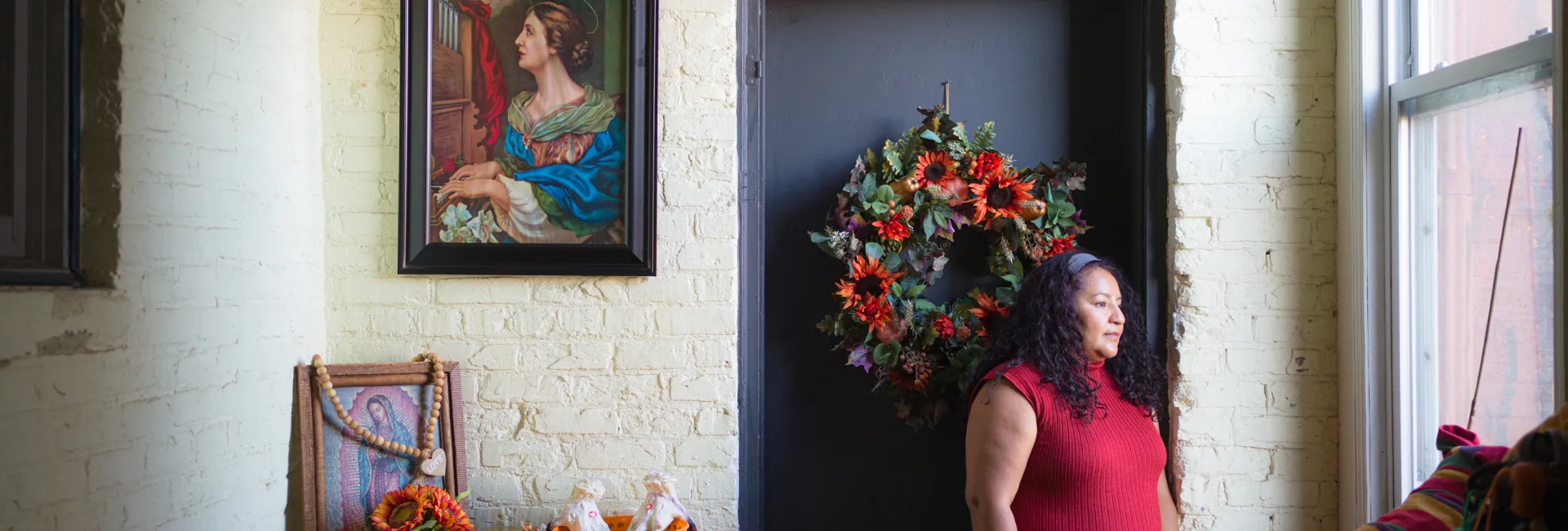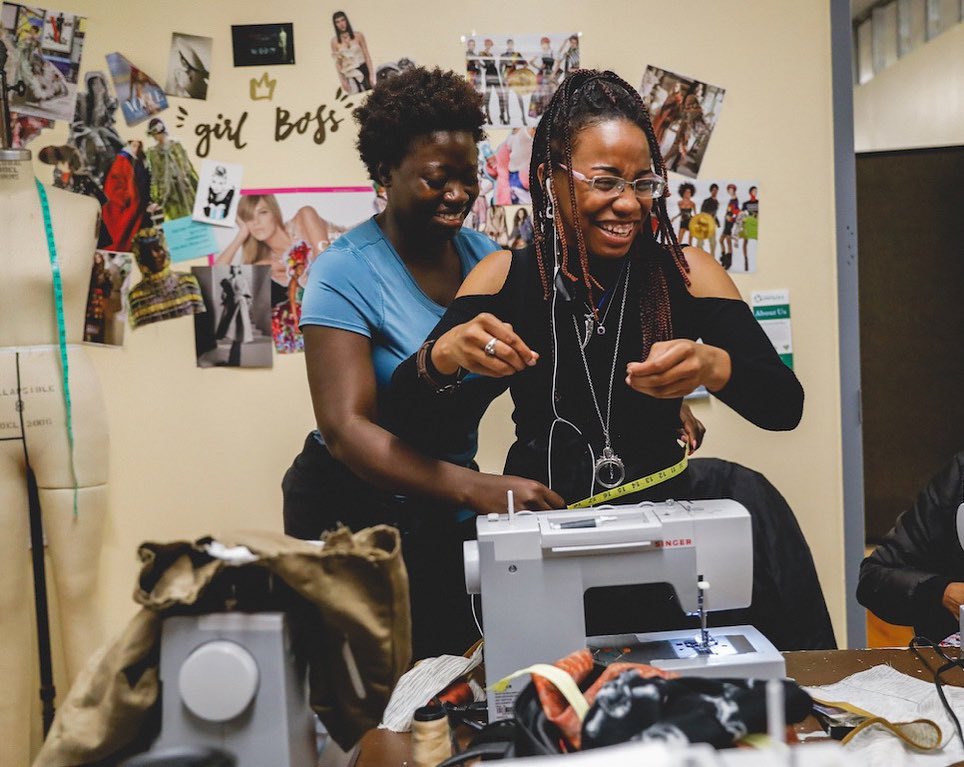Cooperatives are more than just business models; they are community-driven vehicles for economic empowerment and social change. Across the country, co-ops are giving people the opportunity to take ownership of their futures, offering solutions to critical challenges like affordable housing, racial equity, and job creation. Through initiatives like the Co-op Innovation Award, organizations are empowered to catalyze these efforts and expand their impact.
In this piece, we spotlight two inspiring examples: Pilsen Housing Cooperative in Chicago, IL, where long-time residents are reclaiming their neighborhood from the forces of gentrification, and Co-op Cincy in Cincinnati, OH, which is empowering entrepreneurs through culturally relevant co-op development.
Dive into their stories below to see how these co-ops, supported by the Co-op Innovation Award, are building pathways to stability, security, and community.
- Pilsen Housing Cooperative, Karen Leon, Chicago, IL
- Co-op Cincy, Cynthia-Pinchback-Hines, Cincinnati, OH
Stability, Security, & Belonging Through Housing Co-ops
Twenty-four years ago, Karen and Enrique Leon immigrated from Mexico to Chicago, Illinois with their two oldest children, a collection of mariachi instruments, and dreams of a safe, comfortable future for their family.
They quickly found community and a loyal audience for Enrique’s mariachi band in Pilsen, a neighborhood in Chicago’s Lower West Side that has nurtured a vibrant community of Mexican-American immigrants and artists since the 1960s. For their growing family — their third child was born in Pilsen — the neighborhood was home.
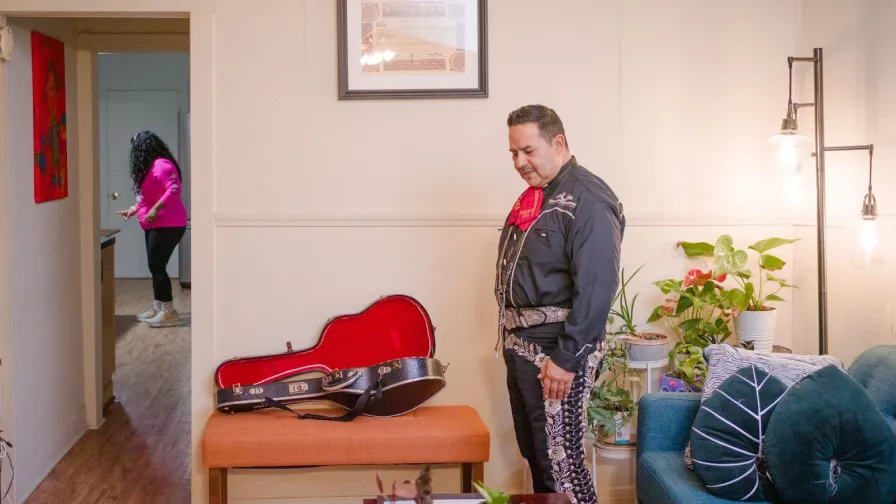
But Pilsen began changing, with rising rents and gentrification threatening to displace the families at the heart of the community. In 2020, the Leons, despite years of reliable tenancy, found themselves facing eviction due to a slight increase in income that pushed them just over the limit for their subsidized housing yet left them unable to afford suitable rentals in the neighborhood.
“We felt betrayed,” said Karen, recalling the fear and pain of a 30-day notice delivered in the midst of a harsh Chicago winter. “After 18 years, we had to give away all of our belongings besides our clothes, paperwork, and instruments and squeeze our family of five and two dogs into a tiny apartment that cost $1,500 a month.”
It was a devastating blow, but it was also a turning point. Amidst the struggle to find a viable living situation, Karen discovered a lifeline: the Pilsen Housing Cooperative (PIHCO).
Pilsen Housing Cooperative: Protecting a Community from Gentrification and Displacement
Housing cooperatives, or co-ops, offer a unique solution to the challenge of securing stable, affordable housing. Under the cooperative model, a group of people shares ownership of and responsibility for a property or business, with decision-making power distributed evenly among the residents. This model offers disinvested communities the unique chance for radical transformation and inclusive economic growth.
PIHCO was founded in 2017 by longtime neighborhood residents determined to resist displacement. They pooled funds to buy two multi-family buildings (in 2020 and 2022). PIHCO offers a simple, powerful model. Members buy shares in the cooperative, giving them shared ownership and management of the buildings and the right to occupy a unit. The resale price of PIHCO shares is limited, ensuring that housing remains accessible to families living with low and moderate incomes. PIHCO units have sold for between $60,000 and $163,000, with down payments as low as $2,000. At the time of purchase, three-quarters of residents had incomes at or below 80 percent of the Area Median Income.
“When I found the co-op, we were in a bad situation,” Karen said. “It gave me hope again. My kids were in high school here in Pilsen, and I could not imagine moving them. They grew up here, going to the community pool, to church, and to school — their friends and their lives were here in Pilsen.”
Through PIHCO, the Leons were able to purchase a four-bedroom co-op apartment, giving them a newfound sense of security and belonging. Today, Karen serves as co-president of PIHCO, leading information sessions, conducting interviews with prospective members, and advocating for the cooperative housing model.
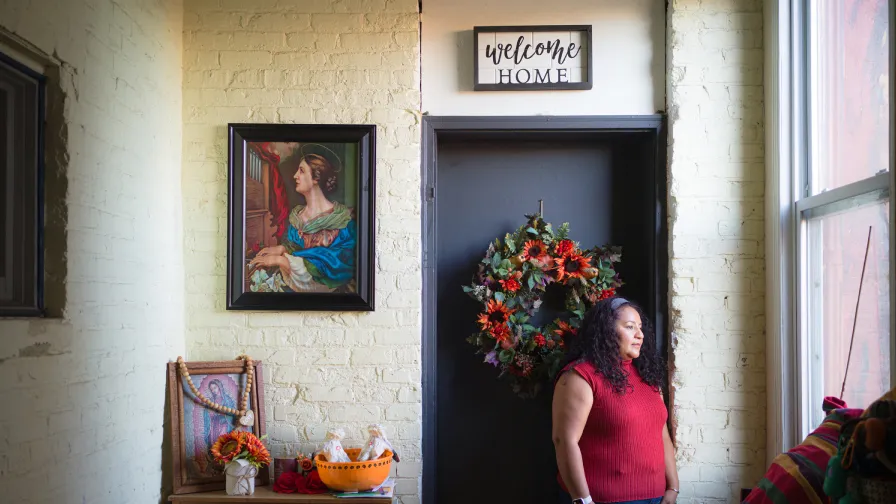
“Living in a co-op isn’t for everyone,” she noted. “It’s a different way to live than the American dream of a single-family home, but I think that difference is what makes us strong. It’s not about profit. It’s for people who want to share, to build a family, and to live in community.”
Catalyzing Change with the Co-op Innovation Award
By 2022, Karen and her fellow co-op members realized that PIHCO’s continued expansion would require outside funding. They applied for Capital Impact Partners’ Co-op Innovation Award to help with the cash purchase of a third building. By purchasing the building outright and financing new members’ shares, PIHCO aimed to build a long-term income stream to fund further growth.
Capital Impact Partners has supported co-ops since 1982, offering more than $315 million in financing and extensive technical assistance. However, traditional lending often isn’t the right fit for early-stage co-ops that need capital but aren’t in a position to take on debt.
“We saw that the real innovation was happening in smaller, scrappier co-ops,” said Alison Powers, director, Economic Opportunities at Capital Impact Partners. “We wanted to water the seeds they were planting, but folks don’t need to take on debt at the earliest stages.”
A decade ago, Capital Impact Partners filled that gap by launching the Co-op Innovation Award, an annual grant program that supports cooperatives operating in communities that experience systemic disinvestment. Each year, each award winner receives a one-year seed grant ranging from $10,000-$50,000 to support innovative, early-stage projects with potential for scale. While co-ops from all sectors may apply, preference goes to worker co-ops (product or service providers) and co-ops focused on affordable housing and food access in disinvested areas.
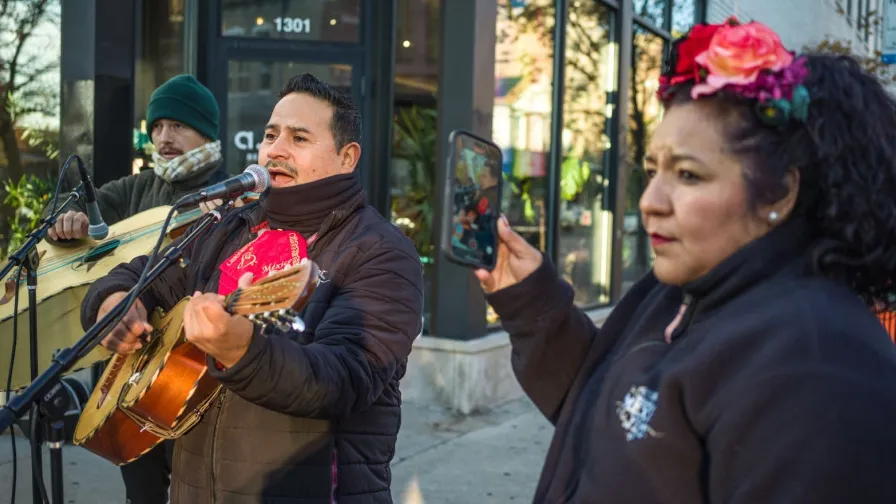
“I have worked with co-ops for more than 20 years and have seen their impact on the ground. Creating this grant program FOR co-ops was so exciting to me as applicants would not need to explain how they work, wouldn’t need to fit into a box anymore”, said Powers.
Award recipients use their funding to launch and market new programs, hire specialists, invest in training and professional development, and more. In addition to this core support, the award often acts as catalytic capital that attracts further investment in these co-ops. Investment dollars can be hard to come by without cash already in-hand; the Award provides that leverage for co-ops.
“Through this award, we can help be a validator for the co-op model and make sure it is not the “best kept secret” in community development, said Powers.
“Calling co-op grant recipients is a highlight of my job. It is my chance to tell people: we believe in your project, we can provide this funding, and we can help amplify your project so other funders will come to the table. It brings me so much joy.”
Expanding the Reach of Cooperative Housing: PIHCO’s Ambitious Plans
With the support of their Co-op Innovation Award, PIHCO successfully acquired a third building and expanded its membership to 18 households and 50 residents. Their ambitions don’t stop there: they’re currently expanding an existing building and acquiring city permissions to break ground on a new 60-unit building with affordable commercial space and shared green space, and even dreaming of reclaiming the iconic Casa Aztlan community center for Pilsen’s artists.
“At Capital Impact Partners, we have a long history of financing multi-family affordable housing co-ops. They are the cornerstones of communities and can stabilize neighborhoods, encourage community engagement, and protect against displacement,” said Powers. “PIHCO is a successful example of such a model; we are excited that more cities are looking to fund housing co-ops and pass legislation that will catalyze ecosystem growth, particularly during the current housing crisis.”
“The co-op is especially important for artists,” Karen emphasized. “Since we are self-employed, banks don’t give us the chance to buy property even if we can afford it. But PIHCO has shown us that community makes us stronger — even if you feel you can’t do something, we can do it together.”
Co-op Training for Culturally Relevant Community-Building
Power in Numbers: Nurturing Community-Led Worker Co-ops in Cincinnati
While PIHCO has found success building from the ground up, launching a co-op is a complex — and sometimes overwhelming — process. That’s why, in addition to supporting co-ops directly, Capital Impact Partners funds organizations working to spread the message about cooperatives and to provide the structures and support new co-ops need.
2021 Co-op Innovation Award winner Co-op Cincy is one such example. Based in the heart of Cincinnati, Ohio, Co-op Cincy has been growing an ecosystem of worker-owned cooperatives in the region since 2011, offering training programs and technical assistance. The organization applied for an Innovation Award to address a critical unmet need: offering targeted support for co-op founders in their community who faced additional, unique challenges.
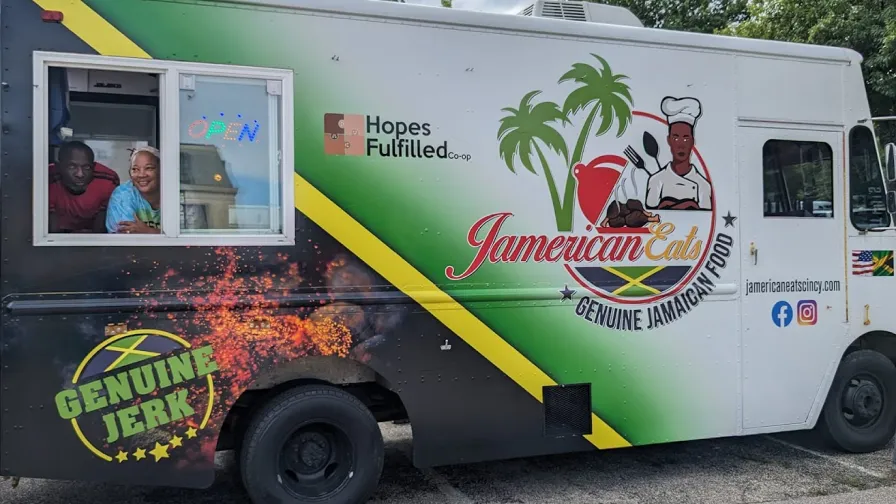
With the award, Co-op Cincy hired Cynthia Pinchback-Hines, a former Co-op Cincy Board member with a wealth of experience in education and civil rights. Pinchback-Hines meticulously adapted the co-op’s existing programming, focusing on cultural relevance and community-building. The result? Power in Numbers, a Community-led co-op business boot camp designed to empower and uplift founders working in disinvested communities.
“Co-ops are a tool for communities to do business when they are locked out of the mainstream economy, and they have a long history in disinvested communities,” said Powers. “We thought it was important to have culturally relevant co-op development that recognizes the history as well as the current challenges specific to owners working in disinvested communities, and Co-op Cincy had a strong track record and a clear vision to achieve that. Business ownership is becoming more important than ever as home ownership increasingly becomes out of reach and as the wealth gap increases.”
“Community-led businesses come to the table with different types of challenges,” Pinchback-Hines explained. “Our platform allows for conversations around historical context and socio-emotional issues. It’s a lot to fit into 14 weeks!”
But it’s within those 14 weeks that magic happens. Teams of entrepreneurs come together not just to learn the nuts and bolts of starting a co-op, but to forge connections, share experiences, and build a support network that will sustain them on their journey.
Hope J. Gordon and her husband run Hopes Fulfilled Farm2Table Co-op, an amalgamation of several ventures which include Jamerican Eats food truck. The co-op benefited from Co-op Cincy’s Power in Numbers program and were able to get the food truck started.
The results speak for themselves. Power in Numbers has graduated five cohorts so far, with co-ops emerging across a spectrum of industries. From a collective of doulas providing vital maternal care in South Carolina to JamericanEats, a Jamaican food truck in Ohio, these businesses demonstrate the power of the co-op model to create both economic opportunity and social impact.
But for Pinchback-Hines, the true measure of success lies in the transformation she witnesses in the participants.
“The experience is about gaining power by recognizing and understanding that we’re not alone and that together, we can do big things,” she said. “The co-op model brings us back to the collective wisdom of our ancestors.”
Like PIHCO, Co-op Cincy has big goals. They’re actively working to spread the Power in Numbers model, building partnerships and sharing their knowledge to empower other entrepreneurs far beyond Cincinnati.
“I hope this becomes a model that others want to replicate,” said Cynthia
A Shared Vision for a More Equitable Future
Those successes, say Powers, aren’t just changing the lives of their members. They’re changing the narrative about what a co-op can achieve.
“A lot of people think that co-ops are very niche and aren’t scalable,” she said. “But the success of our award winners shows that if you believe in people’s ideas and give them access to the right kind of capital, they can grow and create more jobs and have more impact.”
In total, a combined $1.025 million in grants have been awarded to 30 innovative organizations across the country. These awardees have subsequently leveraged their awards to secure more than $13 million in additional funding from foundations, investors, and government agencies.
The Co-op Innovation Awards give new organizations the momentum to start that positive chain reaction. That’s why they are more than just a funding mechanism; they represent Momentus Capital’s unwavering commitment to a more just and equitable economy.
“The awards are a testament to our shared belief that co-ops hold the key to unlocking the full potential of underserved communities,” said Ellis Carr, president and CEO of Capital Impact Partners and CDC Small Business Finance. “The co-ops we have funded over the past decade have already built a remarkable legacy, and we look forward to watching them continue to expand and fund new and innovative organizations for years to come.”
